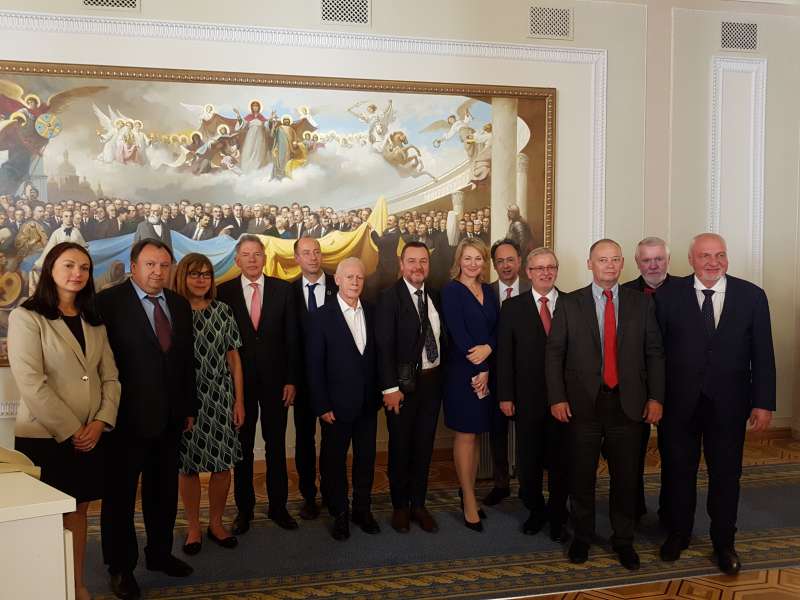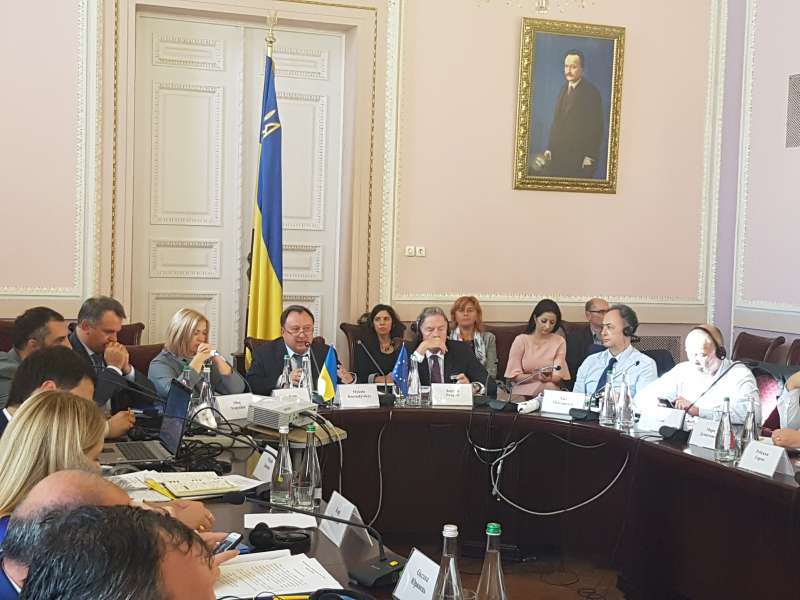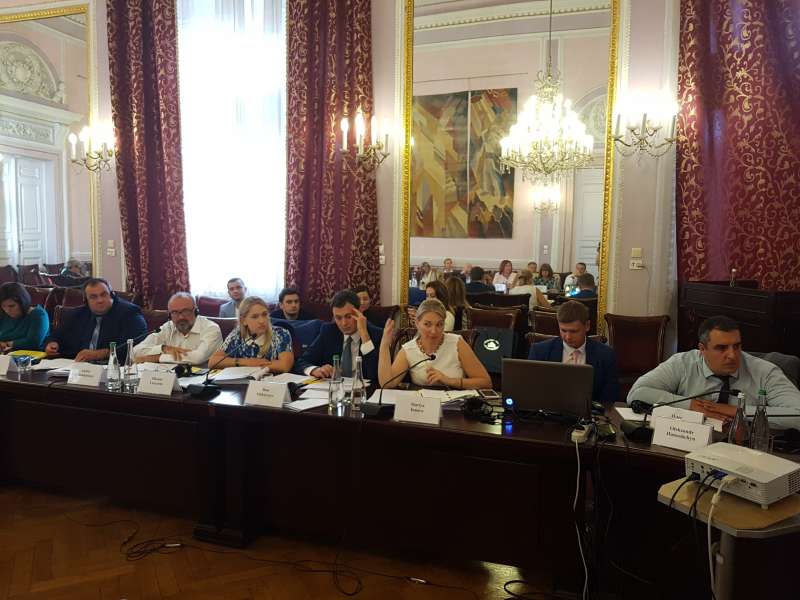In the follow-up to the Eighth meeting of the EU-Ukraine Parliamentary Association Committee (PAC) there have been approved the Final statement and Recommendations
The eighth meeting of the EU-Ukraine Parliamentary Association Committee (PAC) was held in Lviv and Ivano-Frankivsk on 17-18 September 2018, co-chaired by Mykola Kniazhytskyi on behalf of the Verkhovna Rada of Ukraine and Dariusz Rosati on behalf of the European Parliament, alongside Ukrainian parliamentarians, MEPs, representatives of the Ukrainian Government and the European Union in attendance.
The meeting was also attended by the First Deputy Chairperson of the Verkhovna Rada of Ukraine Iryna Herashchenko, who during her speech called on the international community to strengthen personal sanctions against Russia and support the introduction of an international peacekeeping mission in eastern Ukraine, having noted that there are over 70 hostages in bonds at present.
The Head of the EU Delegation to Ukraine, the EU Ambassador to Ukraine Hugues Mingarelli informed the participants that in Ukraine there has finally been developed an institutional structure on combating corruption, and announced the updating of the Road Map of legislative support for the implementation of the Association Agreement. He also marked the progress in the implementation of technical barriers and rules of competition.
The head of the Lviv regional council informed the conferees about the existing programmes and their financial conditions for cooperation of the Lviv region with the EU as well as about new horizon for cooperation.
Within the framework of the event, there took place a joint meeting of PAC members with committeemen from the Parliament’s Committee on European Integration. The deputy head of the Committee on European Integration Mariia Ionova informed the participants about the state of affairs in implementing the EU-Ukraine Association Agreement, as well as of the Ukrainian Government’s main achievements in recent times. In addition, M. Ionova laid particular stress upon the current problem of Russian propaganda and cyber-attacks carried out by this extremely aggressive country.
PAC members in concert with other attendees heard a ministerial officer in charge of the EU-NATO integration about the progress in implementation of the EU-Ukraine Association Agreement. Another Ukrainian official delivered an ample report on the state of play in the cross border cooperation between Ukraine and the EU, including activities of the so called “euro-regions”.
PAC delegates and other participants of the meeting exchanged their views on the effectiveness of the implementation of the Association Agreement and the progress in Ukrainian reforms. They also deliberated the main existing problems in reforming Ukraine.
In addition, PAC members held a roundtable with representatives of Ukraine’s national minorities who outlined the major problems that exist and how to solve them.
On September 18, 2018, members of PAC paid a visit to the Vasyl Stefanyk Precarpathian National University. The university's head notified the guests about the participation of the university in various EU educational programmes, university's achievements, educational and scientific centers for the development of university’s students. The European parliamentarians had a good chance to communicate with the students answering their questions.
PAC members had another meeting with representatives of the “ULEAD with Europe” programme’s office who delivered a brief report of the programme’s activities and peculiarities.
In addition, on September 18, 2018, there took place a second round of the 8th PAC meeting. The co-chair Dariusz Rosati noted that the issue of illegal annexation of the Crimea and restoration of the territorial integrity of Ukraine is less and less heard on the international scene.
D. Rosati also clued up about the blockade of Ukrainian ships by Russia and the ecological and production-induced catastrophe in Kramatorsk. Rebecca Harms, a MEP and a PAC member, stressed that the Minsk accords did not work and did not improve the situation over Ukraine, and also expressed her hope for having a proper assistance from the United Nations.
Ukrainian delegates expressed their deep concern about possible lifting sanctions imposed on Russia, and also informed the EU side about a technological disaster in the occupied Crimea at one of the chemical enterprises, which then led to heavy environment pollution in the region as well as in the Kherson oblast (region) of Ukraine.
A Ukrainian member of PAC drew close attention of those present to the need of taking up the law on Ukraine’s occupied territories. Rebecca Harms also stressed a pressing necessity in early carrying such a law for meeting the terms of the Minsk agreements, and reminded that Russian sanctions had been on September 13 extended for ten more months.
PAC members also considered a range of issues on gender equality in Ukraine, participation of national minorities in elections and their representation at the Ukrainian Parliament, and discussed operating efficiency of the anti-corruption system along with ensuring real independence for the said system.
In the follow-up to the Eighth meeting of the EU-Ukraine Parliamentary Association Committee (PAC) there have been approved the Final statement and Recommendations.


